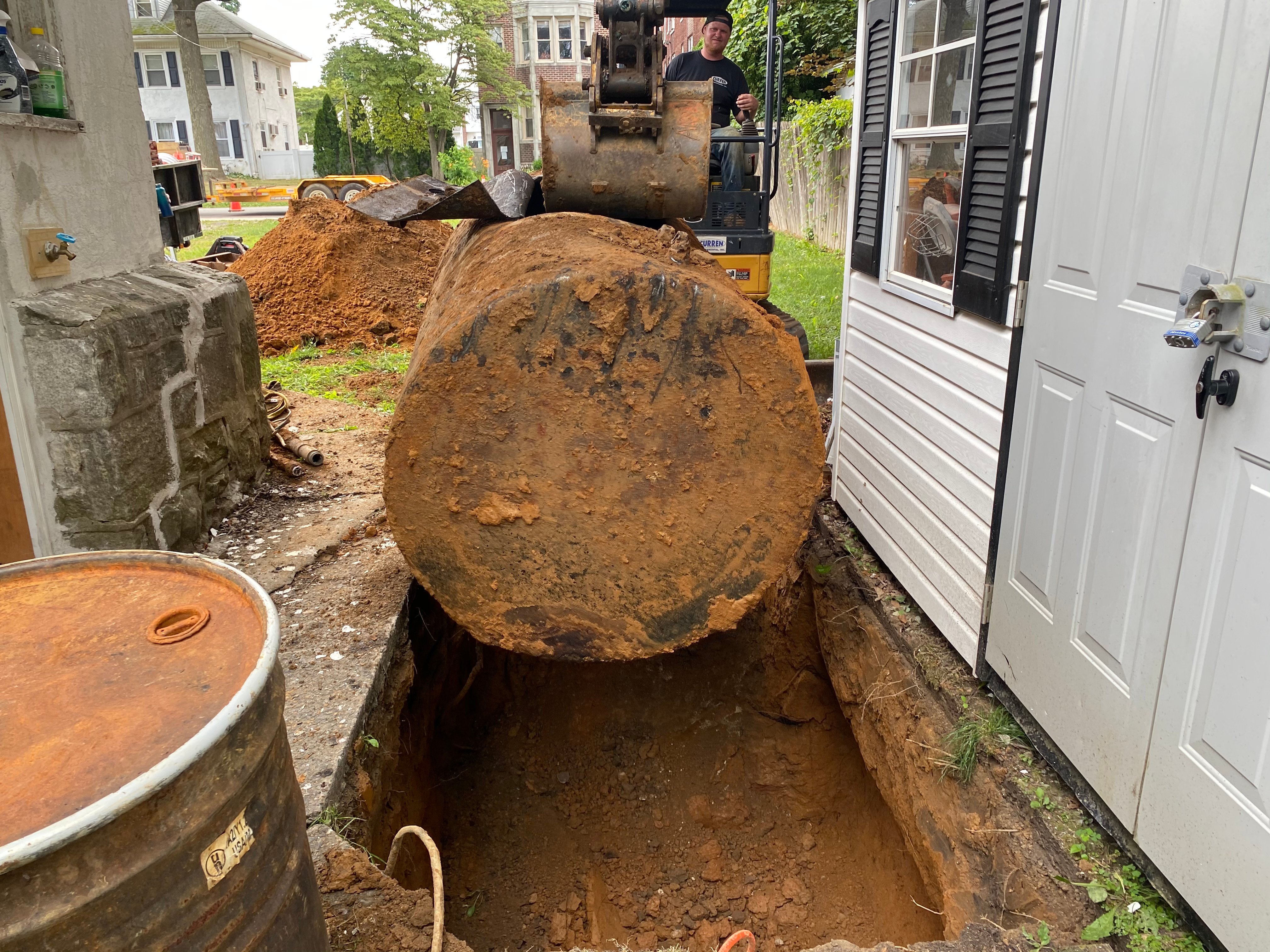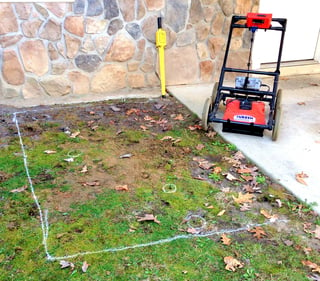Oil Tank Sweeps, Tank Scans, GPR, Ground Penetrating Radar...
We have recently been getting a large influx of calls from buyers in Delaware concerned about the need to perform a tank sweep. Delaware famously known as the First State has a long history of oil heat. In Delaware as in Pennsylvania and New Jersey, many property owners filled their oil tanks in place when they stopped using the tank. Its basic math that when you convert from oil to natural gas or propane or even electric you are spending money. You would spend even more money if you do something with the oil tank, so many people just cut off the pipes to the buried tank to more or less remove any evidence of oil heat. Some filled the tank with sand, fewer still actually removed and tested the tank. The most money spent with an oil tank? Well that is when the tank leaks as the photo below shows you how bad a tank leak can get.
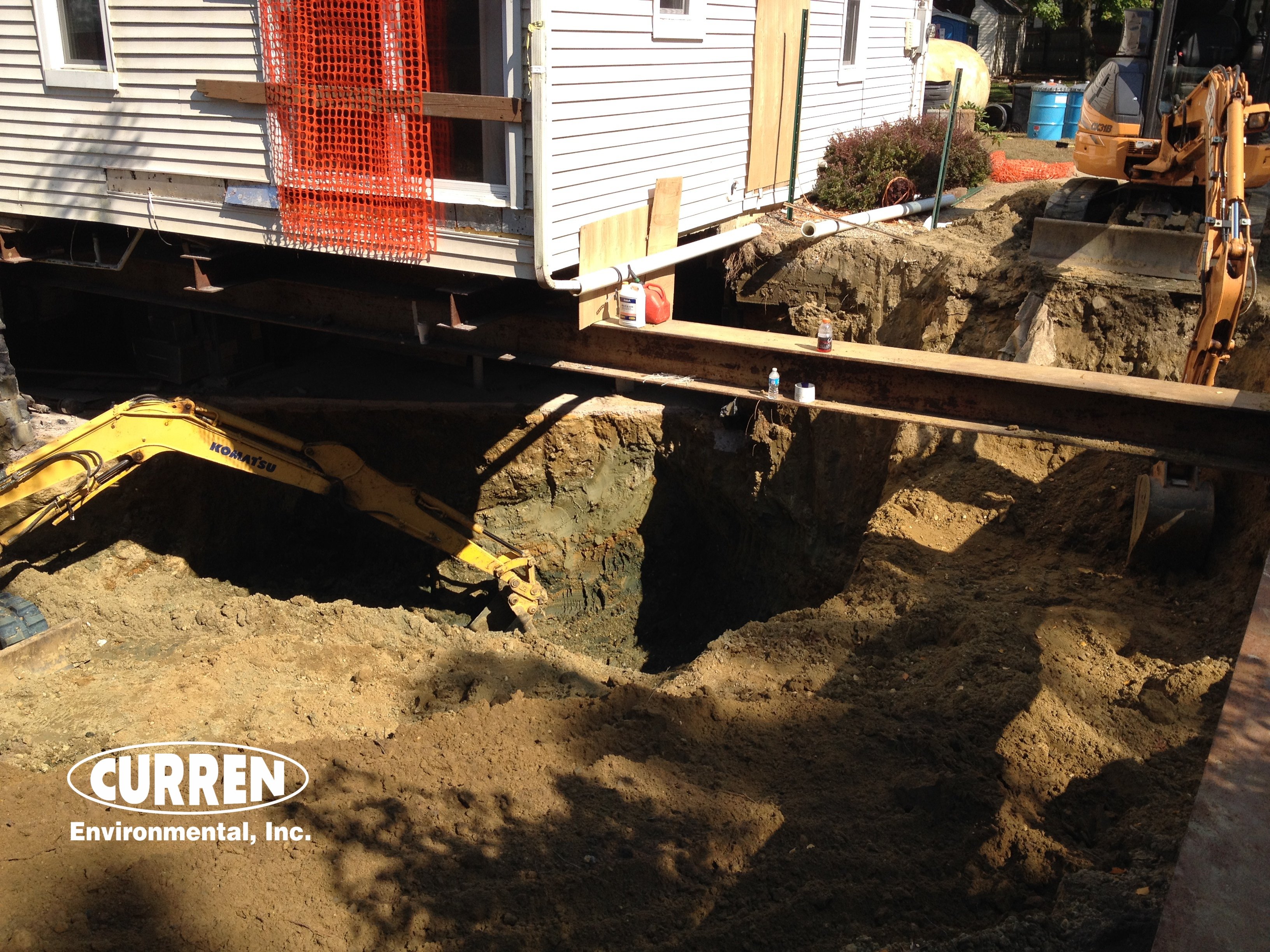
The liability associated Underground Heating Oil Tanks (USTs) is fairly well known to most buyers and sellers nowadays, but our office still gets calls regarding why a tank scan should be performed.
We explain that historically home heating oil has been stored in Underground Storage Tanks (UST’s). Homes built in the early 1900’s to around the mid 1990’s are most likely at risk to having a buried oil tank. When tanks leak, homeowners can face environmental regulations originally written with businesses in mind, not residential homeowners. Property owners can face cleanup costs in the thousands of dollars, and find their homes difficult to sell, because banks and mortgage loan companies do not make mortgages on properties with abandoned, untested tanks. Rust never sleeps and Underground Oil Tanks will not last forever.
Fact
After over two decades (1998) of performing tank sweeps, it is not uncommon that after we find a tank, and the property owner SUDDENLY has an epiphany about the tank. They suddenly remember that there was a tank on the property when they bought it and they even have paperwork for it. Our clients are almost always taken back but this sudden revelation of information. The common denominator is the seller was hoping we wouldn't find the oil tank.
People hide tank because they bought the home not understanding the liability associated with a leaking tank. Delaware is just becoming more aware of tanks as an issue as the migration of buyers from New Jersey and New York who have first hand knowledge of oil tank leaks. Bottom line tanks rust in any state.

The laws in Delaware are set that when you own a property you own the problem, the courts have ruled that a current residential property owner with a “leaking underground storage tank” that was decommissioned or "closed" prior to the property’s purchase is now liable for cleanup costs. The residential real estate market must conduct their due diligence to include inquiry regarding underground storage tanks. You buy the property you buy the problem.
An oil tank sweep is like a home inspection but is specific to one thing, finding an "undisclosed" buried oil tank. Tank sweeps are becoming more common in the real estate sales process. Today both sellers and buyers are having tank sweeps performed due to the large concern over leaking tanks. All anyone has to do is google "oil tank leak" and you will find a plethora of scary web pages, photos and horror stories of tanks leaking and the expensive headache filled experience that ensues.
The internet has made everyone more informed regarding topics that were once only known to professionals. People now know that when you buy a property you buy the good and the bad with a home. Good school system, check, safe neighborhood, check, oil tank leak and associated cleanup, check. You buy a property and don't perform due diligence, you are at fault and responsible for imperfections and repairs to a property.
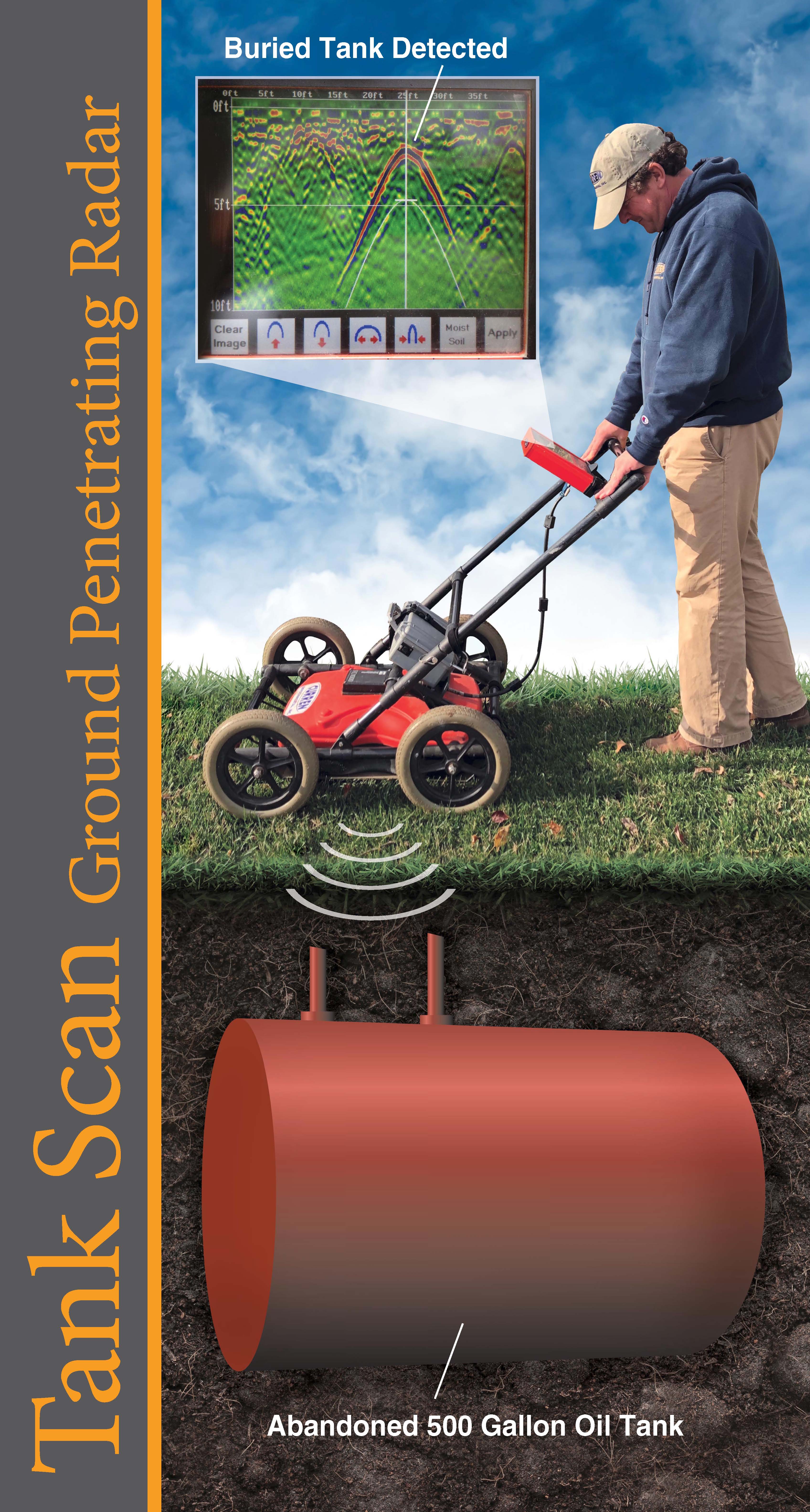
So what is a tank sweep?
There are two types with disparate costs and variable results.
First and most basic is a sweep performed with a metal detector. These sweeps utilize metal detector that can cost only a thousand dollars and yet the charges to perform a tank sweep with a metal detector range anywhere from $50.00 up to $250.00. Their low cost is based on the low quality of the sweep and the low cost of the equipment involved. Metal detector tank sweeps are typically hand stamping a transaction that a tank probable isn't present. These sweeps while on the surface make sense (buried metal, metal detector should find something), they are a needle in a hay stack. Geology on any property will have some amount of metal (ferrous metal deposits) naturally occurring, as well as from the development of the site (we have found screws, nails, license plates, buried metal trash.. Buried metal can include buried pipes that service or serviced the property including electric lines, water, sewer, drains, as well as surface metal such as fences, metal used in the home (most tanks are close to the house). Concrete sidewalks, driveways and patios can have wire mesh or metal rebar in the concrete that can set off a metal detector and give false positives. All this buried metal is competing for the attention of the metal detector and can give a background reading and can mask the actual tank when encountered. This happens by the buried metal fooling individuals performing a tank sweep to adjust the sensitive of the metal detector due to the detector constantly spiking (beeping) from the background metal on a site. Therefore, while a metal detector sounds fool proof it is the more foolish of the two options.
The second type of tank sweep and much more throughout utilizes GPR or ground penetrating radar. These scans range in costs that are comparable to a home inspection, but utilize specialized equipment costing tens of thousands of dollars. GPR is not fooled by buried debris as it utilizes radar as a detection method. Like sonar, radar sends a signal into the ground. This radar signal can't penetrate buried objects with density such as metal tanks and accordingly when radar finds a tank, the signal is reflected back to the surface where a screen reads a graphical interpretation of the objects. The signal is best described as a pyramid reflection. Pipes return a small pyramid, tanks return a bigger pyramid.
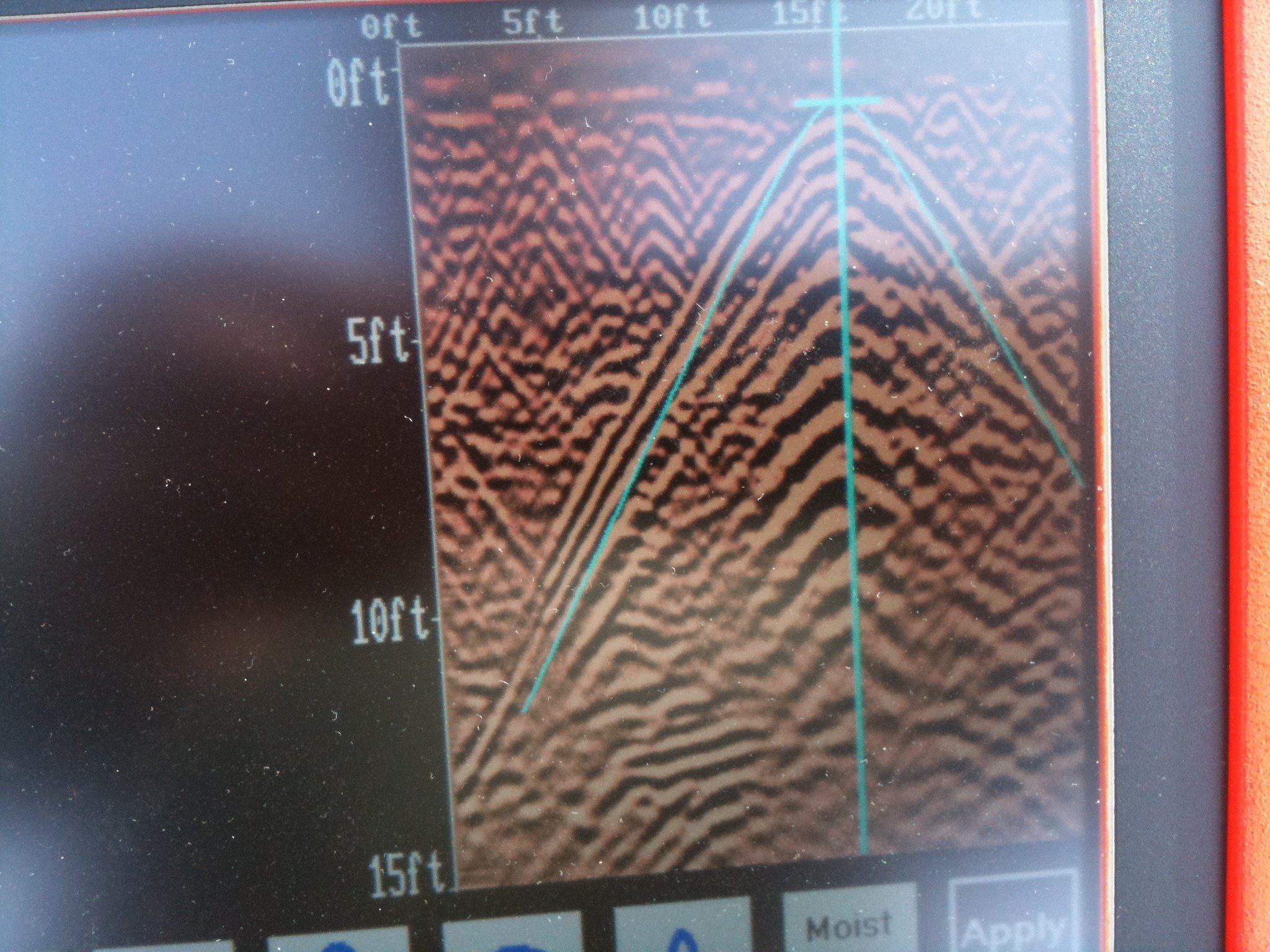
If you want to get more technical, GPR radiates short pulses of high-frequency EM energy into the ground from a transmitting antenna. When the EM energy (wave) encounters the interface of two materials having different properties, a portion of the energy is reflected back to the surface. Buried Oil tanks or metal pipes reflect the EM signal back to the surface, indicating a found buried object. If the signal does not encounter a buried object the EM signals goes deeper into the ground indicating no object found. The difference between these two readings is what allows a GPR technician to determine a buried object from normal soils. The radar can go through concrete and asphalt.
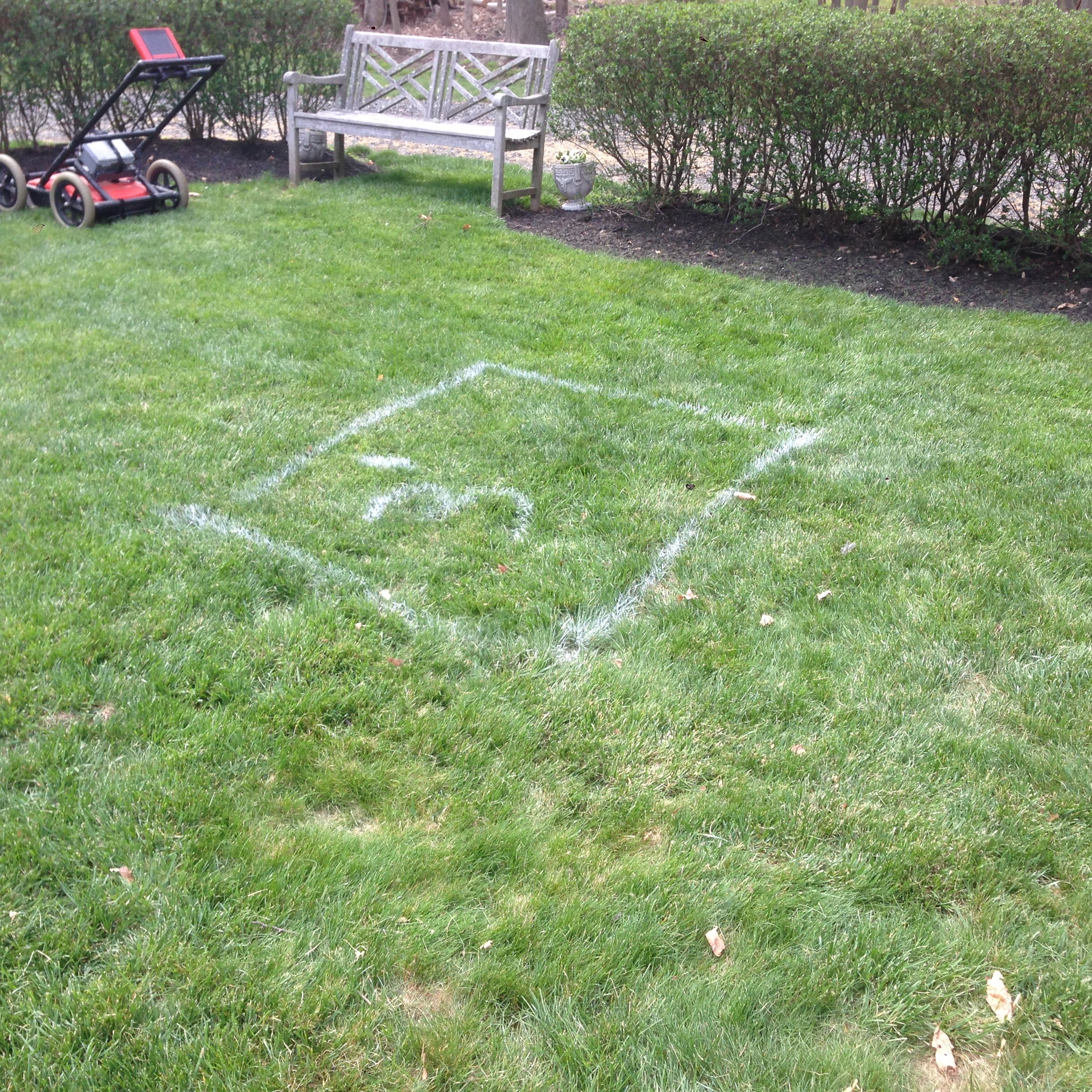

So why hire a company like Curren to do a GPR tank scan? First, we provide turnkey solutions including tank locating, removal testing and remediation. Our technicians have been involved with tank removal so they are familiar with the various ways a tank system is constructed and thus know what to look for when performing a tank sweep. When you hire a firm with over 20 years of service experience, you are dealing with a firm that has helped thousands of client. Our repeat customers and referral network is large and a testament to the quality of our service.
Curren completes tank scans with equipment costing tens of thousands of dollars. The least expensive and reliable are metal detectors. If you did not know, 85% of oil tanks are within a few feet of the foundation of a house. Houses have metal, underground pipes have metals, buried metal can be found naturally and by man on any property. These smaller metal signatures can confuse a metal detector and provide false readings, both when a tank is and is not present. GPR does not have these limitations.
Curren Environmental has over 20 years’ experience with tanks and all work is performed in house and by company personnel, this ensures both timely execution of projects as well as cost savings by avoiding subcontracting. Curren is licensed by the New Jersey Department of Environmental Protection (NJDEP), Pennsylvania Department of Environmental Protection (PADEP) and Delaware Department of Natural Resources and Environmental Control (DNREC).
